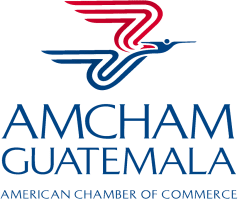The National Competitiveness Policy is a coordinated effort between the production sector, civil society, the academy, the trade union sector and the public sector. It aims to address three compelling demographic phenomena: the population growth, by 2032 the Guatemalan population will be around 22 million people. Then, there will also be the demographic dividend phenomenon, which will be when the workforce will outnumber the retired, and this will cause an extraordinary increase in the employment demand. Finally, there will be a transition from rural to urban. By 2032, it is estimated that 79% of the population will live in the urban centers.
It is organized under three strategic guidelines called 11-11-9: 11 clusters -11 competitiveness priorities – 9 suitable territories to be established as intermediate cities. The foundations are located in the 12 pillars of World Economic Forum, incorporating two additional cross pillars: social and environmental sustainability. This thereby increases productivity and creates greater economic growth for the country.
Guatemala is currently at a defining moment in creating conditions that will allow the Guatemalan population to have greater access to employment opportunities and, consequently, higher levels of well-being and prosperity. In order to enhance this opportunity, this policy suggests the development of cluster structures. These helps strengthen the productive and economic dynamics generated from the territory. In addition, it makes it possible to consider the differentiated social and productive characteristics of clusters, promoting inclusive economic development. The Policy defines actions to consolidate the economy between agglomerations of people with better productive and purchasing capacities, promotes increased productivity, allows the generation of scale and operational efficiency, while stimulating innovation and facilitating marketing, and the development of new businesses and resilience.
The eleven main clusters are: 1) Forest, furniture, paper and rubber, 2) Fruit and vegetables, 3) Processed foods, 4) Beverages, 5) Textiles, clothing and footwear, 6) Metal Mechanics 7) Tourism and health services, 8) Transport and logistics, 9) TIC´s, software and call centers 10) Construction 11) Light manufacturing. By 2032, these are capable of creating more than five million production jobs in high demand industries both nationally and internationally. Plus, they remain quality products and services provided.
The development of clusters requires different productive sectors to overcome gaps that restrain competitiveness. That is why the Competitiveness Policy develops the Priorities, divided into two agenda. The first addresses issues that impact at the national level (Horizontal Agenda): to eliminate corruption, increase legal certainty, increase security, improve educational quality, end chronic malnutrition. The second addresses local and sectoral levels (Vertical Agenda): to reduce the costs of bureaucratic processes, improve infrastructure and logistics, sustainability of the electricity subsector, boost research, development and innovation, strengthen the entrepreneurial ecosystem and increase the attractiveness of foreign investment.
Guatemala is a perfect investment destination because it has an excellent geographic location to access booming markets, outstanding macroeconomic stability, free currency negotiation and financial resources under optimized conditions. The Competitiveness Policy advocates for the generation of greater political stability, institutional strength, legal certainty, flexibility in labor laws, private property respect, skilled labor and good infrastructure, among others.
The Competitiveness Policy actions include: the process simplification through the asisehace.gt tool, the regulations update such as the Code of Commerce amendments which reduces costs and time in the companies’ registration, the amendments to movable guarantees law which gives access to credits to people who do not have real estate guarantees, the factoring law and a legislative agenda aimed at encouraging investment and employment generation. They also support actions to improve the population’s skills, including educational programs, entrepreneurial ecosystem promotion and innovation through business training, innovation encouragement. Plus, it supports strengthening local economic development by providing competitive tables.
The identification of nine territories suitable for development established as Intermediate Cities would improve the coverage of basic services, provide a response to the economic, political and social dynamics between the city and the countryside and would guarantee the flow of people, goods, capital and knowledge. The following map shows the location of these territories.
The National Competitiveness Policy enables an appropriate approach to interventions and investments required to address competitiveness gaps and enhance the productive activity of clusters identified in territories suitable for urban development. It represents a greater degree of detail regarding analysis, the actions to be executed and the interinstitutional and intersectoral coordination as strategic planning tools, in order to unify the efforts towards the fulfillment of the same goal: Improve competitiveness to increase national productivity and thus generate inclusive, accelerated and sustainable economic growth.
Víctor Asturias
Presidential Commissioner for Competitiveness and Investment
National Competitiveness Program – PRONACOM






